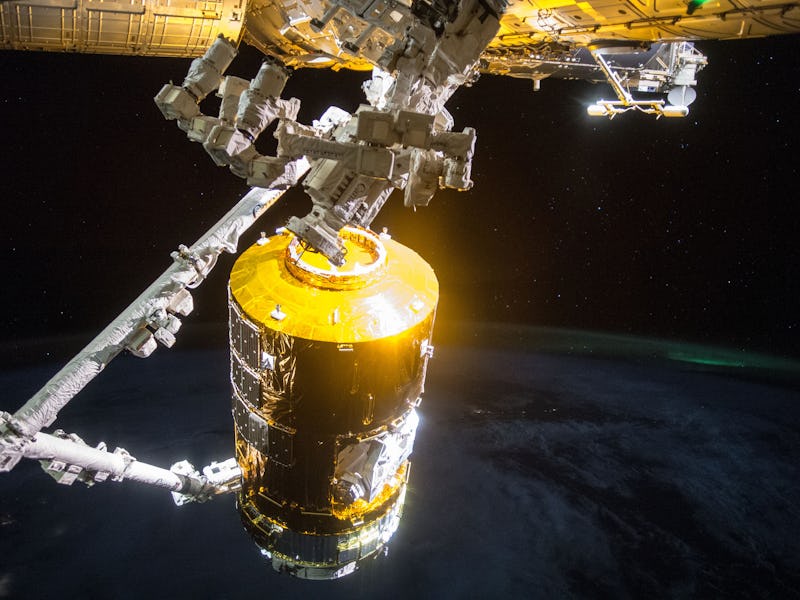Japan's "White Stork" Spacecraft Delivers Supplies to Sapped ISS

Four days after launching into orbit, the Japanese Aerospace Exploration Agency’s “white stork” cargo ship arrived at the International Space Station on Tuesday. According to NASA, every step went off without a hitch, with the spacecraft even launching from southern Japan’s Tanegashima Space Center a few minutes ahead of schedule. Capture was confirmed at 5:37 a.m. Eastern.
The unpiloted H-II Transfer Vehicle — HTV-6 for short — is a resupply craft, delivering more than four tons of supplies and experiments to the ISS. JAXA calls it “Kounotori” — “white stork” in Japanese. As storks are symbolically associated with carrying and delivering precious cargo (babies; happiness), HTV-6 is a vital lifeline to the ISS. HTV-6 was also described again as a “golden treasure box,” a phrase first used by Japanese astronaut Kimiya Yui during the last similar journey in August 2015.
White Stork viewed from the ISS
Operating from the ISS cupola, NASA Expedition Commander Shane Kimbrough and the ESA flight engineer Thomas Pesquet retrieved the cargo ship by reaching out with the Canadarm2 robotic arm and snagging it with a grapple.
This supply run is especially crucial because the last one, a Russian effort, quite literally exploded. The resupply ship Progress burned up in the atmosphere over southern Russia before ever reaching the ISS, leaving the station without vital cargo — air —purification hardware, medical gear, 700 lbs of food, nearly 1,000 lbs of water, and fresh underwear. It was the fourth such resupply to fail in the last 25 months.
HTV-6 has the largest loading capacity of any cargo ship in the world — about six metric tons. It’s supplied the ISS with everything from CubeSats (microsatellites), to cameras to water and fresh food for the crew. HTVs aren’t reusable, hence why we’re currently on Number 6. When everything is aboard and this HTV is ready to unberth, it’ll be loaded with station waste sent off to burn up in Earth’s atmosphere. The debris will likely fall into the South Pacific Ocean.
White Stork docking to the ISS